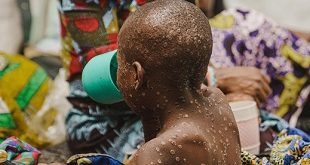The Hague, Netherlands | AFP |
The chief prosecutor at the International Criminal Court said Monday she was opening a preliminary probe into violence in Burundi, which has been engulfed in a deep political crisis for a year.
ICC prosecutor Fatou Bensouda said she had been following events closely since April 2015 when the central African country was thrown into turmoil by President Pierre Nkurunziza’s announcement that he would run for a third term.
She said she had “repeatedly called upon all involved to refrain from violence, warning that those alleged to be committing crimes falling within the jurisdiction of the International Criminal Court could be held individually accountable”.
Her office had reviewed reports “detailing acts of killing, imprisonment, torture, rape and other forms of sexual violence, as well as cases of enforced disappearances,” she said in a statement.
“All these acts appear to fall within the jurisdiction of the ICC,” she said, referring to the tribunal based in The Hague and set up in 2002 to try the world’s worst crimes.
“I have decided therefore to open a preliminary examination into the situation in Burundi since April 2015.”
The initial probe is aimed at determining whether there is enough evidence to proceed to a full-blown investigation by ICC prosecutors which could result in drawing up charges against those believed to be responsible for the violence.
Burundi will be the eighth preliminary probe under way at the ICC, while a full investigation has been opened into bloodshed in a further 10 countries.
Nkurunziza won his third term as president in the July 2015 election with subsequent violence leaving hundreds of people dead, while hundreds of thousands have fled.
ICC prosecutors believe in Burundi “more than 430 persons were reportedly killed, at least 3,400 people have been arrested and over 230,000 Burundians forced to seek refuge in neighbouring countries,” Bensouda said.
The opposition, as well as civil groups and some of Nkurunziza’s own supporters, accuse him of violating the constitution and the Arusha peace deal that ended Burundi’s 1993-2006 civil war.
 The Independent Uganda: You get the Truth we Pay the Price
The Independent Uganda: You get the Truth we Pay the Price



